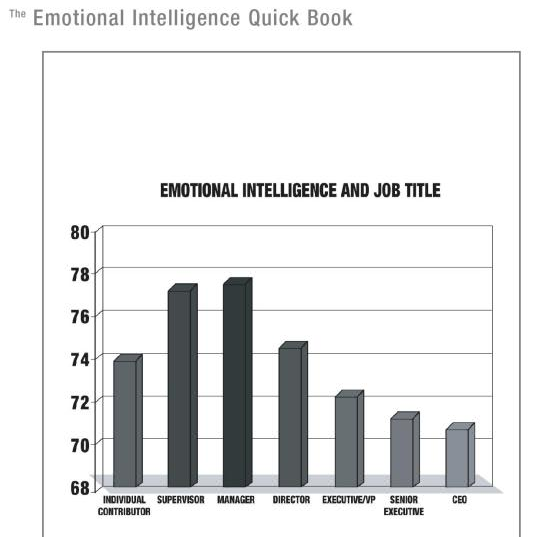The Polling Place Photo Project is a nationwide experiment in citizen journalism that seeks to empower citizens to capture, post and share photographs of democracy in action. By documenting their local voting experience on November 7, voters can contribute to an archive of photographs that captures the richness and complexity of voting in America.
-
Why Smart Guys Play Frisbee
Dr. Michael J. Norden, a University of Washington professor of psychiatry, found a correlation between playing ultimate frisbee and success in university. He explains:
- Students not known for athletic prowess “can show up at college having never played†and be good at it by year’s end.
- The game calls for “spatial aptitude†(“to ‘read’ the projected path of the discâ€) and “quick, accurate decision-making†(“a new play must be improvised every 10 secondsâ€).
- “It is readily compatible with a heavy academic load.â€
-
Venture Capital Lacking Exit Opportunities
The VC bloggers have been discussing alternate funding models for a while, but this story from the New York Times on Sevin Rosen Funds giving back $250 million to $300 million to investors is more than just punditry, it’s walking the talk…
“If we really believe that there are fundamental structural problems in the venture industry, should we raise our fund and just hope that the problems will get better?†the firm wrote. The answer was no.
-
BarCampNYC2
BarCampNYC2 happened last weekend and was a great time. Holding it in the Microsoft offices was a little spooky, but at least that turned up some booty.
More than anything I was surprised at how little code talk there was compared to start up and design talk. Sessions like Entrepreneurial Improv Theater were a great chance for everyone to practice their VC pitching skills. Though it was obvious how hard it is for any one person, myself included, to make their brain stretch from code to UI design to product design to organization building to marketing to finance etc. I was impressed to see everyone try that stretch then collaborate to combine their skills.
-
Planning a Writing Day
My friend Harry received this useful piece of advice from his writing coach. She suggested you follow this schedule during a day of writing:
- Spend 10 minutes planning your work
- Write and write until you are out of ideas and energy
- Reward yourself with fun work like research
-
Is Design the New Management Consultancy? Not Exactly.
Some folks are asking this question. I’ve spent the past two years making the transition from designer to business consultant, jumping a lot of hurdles along the way. Here’s a little of what I learned:
- Highlight opportunities instead of bitching. As designers, we walk around in the world and feel overly sensitive to everything that isn’t designed well. We watch customers struggle when using poorly designed products. There’s an inclination to highlight these faults to executives whom we think should know about these faults. And maybe they should, but mostly they need help seeing the big opportunities. It might sound like product faults and market opportunities are simply the flip side of the same coin, but it’s the difference between being perceived as a whiny designer and a valued business advisor.
- Know your limits. When I hear a designer say, “We were doing the same kind of work McKinsey would do” I think “You really have no fucking idea what McKinsey does.” I used to work at BCG (in the IT dept) and I have yet to meet a designer with thinking, methods, and tools nearly as sophisticated as those consultants. Just consider the career path at these firms: they take the top students from the top business schools who in turn have taken the top undergrads, and so on. Then the consultants work in a demanding up-or-out environment where excellence is necessary. This culture breeds great execution much more effectively than the best design studio cultures.
And I’ve beat the design thinking drum as much as anyone, but it’s naive to believe only designers think this way.
- Invest in new hammers. Not every business problem is best solved by a product/service design or redesign. Sometimes an acquisition is the answer, or a divestiture, or hedging the financial markets. Business leaders have a lot of tools in their toolbox: marketing, sales, operations, finance, IT, HR, strategy, customer service, etc., and each of these in turn has a deep toolbox, with practitioners who all want more strategic influence. Understanding them — and knowing when product or service design is not the best approach — makes for a more well-rounded management consultant.
- See the big picture. Sometimes design does have direct influence on business strategy. But describing that influence in terms of customer experience alone can lack the information that executives want to hear. Learning how to describe design’s benefits in financial and strategic language is key.
- Be realistic about the influence of design. The current barrage of Fast Company and BusinessWeek stories on design can lull us into the impression that design is now king. In my experience, this isn’t anywhere near the case. Sure, there are great changes happening: I see more companies doing field research and more realization of the power of customer experience. But it’ll take years for the generations of business people to change their thinking and practices.
- Know what you mean when you use the word strategy. Unfortunately, strategy has become a muddled word, the meaning even traditional management consultants don’t agree on (see Strategy Bites Back for an amusing look at the situation). But this is no excuse for us to practice muddled thinking. Here’s a simple way I’ve been clarifying it in conversation:
- Product/service design: decide how to create something
- Design strategy: decide what to create, with a perspective beyond the current cycle (e.g. 3-5 years)
- Business strategy: decide what a business should do, with a perspective beyond the current cycle (e.g. 3-5 years)
-
Chris Conley Invades Manhattan
I had the pleasure of getting to know Chris Conley at Overlap and was impressed with the breadth of his teaching, from agile innovation to applying real options to innovation investments. In his role as professor he’ll be pimping the Institute of Design here on Oct 30, discussing design education and its relevance to innovation and business.
-
I am in Love with John Hagel
…or at least his writing. In his latest post he offers an alternative to Porter’s three generic strategies and looks at the Siemens/BenQ situation through this lens…
I have anticipated that all companies over time will unbundle into three much more focused business types – infrastructure management businesses, product innovation and commercialization businesses and customer relationship businesses.
…in my terminology, BenQ had become very successful as a focused infrastructure management business, leveraging not only low wage rates in Asia but rapid incremental innovation to deliver increasingly sophisticated and reliable products in markets around the world. It has developed world class capabilities in terms of managing high volume, routine processing activities and designing products for manufacturability.
All well and good – very consistent with the broader themes I have described. But the Siemens acquisition that took effect in October of 2005 came out of left field. Now BenQ was diversifying from a focused behind the scenes manufacturer and designer into a full-fledged product innovation and commercialization company with its own brands and distribution operations in Western companies.
He then widens this lens to look at Chinese businesses…
…Many Chinese companies unfortunately suffer from something that I have described as Western envy. Despite enormous success in pioneering innovative business models and business practices, many entrepreneurial Chinese companies still have a sense of inferiority and want to look like larger Western companies with their own manufacturing, R&D and sales and marketing operations. The irony is that, just as many Western companies are unbundling (in part offshoring and outsourcing to more focused Chinese companies), many Chinese executives are tempted to build more tightly bundled operations that mimic the model many Western companies are abandoning.
-
Design Thinking Is Like Communing With Magma
“He used to liken [design thinking] to climbing into a volcano: It’s messy and it’s risky and it’s dangerous.”
That metaphor might work for me if I’d been inside a volcano.
-
Torch: A New Business Design Consulting Firm in Toronto
Torch is Wicked is the blog of The Torch Partnership, a new consulting firm based in Toronto that uses design methods to grapple with business problems.
-
Coming Soon: BarCampNYC2
Word is they’re capping the madness at 200 attendees, sign up now.
-
Idealized Design
Idealized design is a way of thinking about change that is deceptively simple to state: In solving problems of virtually any kind, the way to get the best outcome is to imagine what the ideal solution would be and then work backward to where you are today. This ensures that you do not erect imaginary obstacles before you even know what the ideal is.
…not unlike tangible futures.
Link courtesy of Austin.
-
MSNBC Review of the World Future Society Conference
Until I get around to recording my own observations, here’s Michael Roger’s review of the recent World Future Society conference in Toronto.


